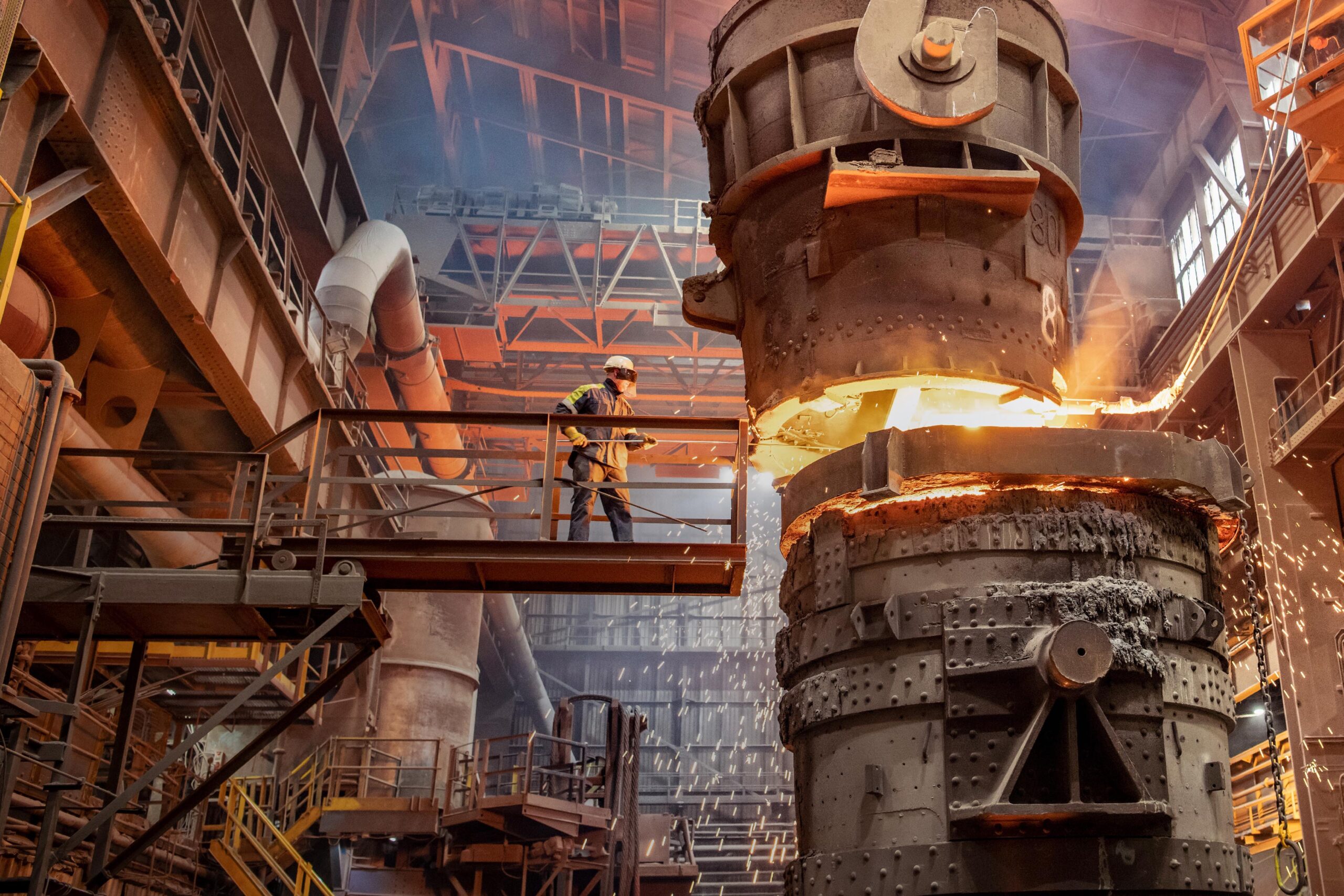The future of TMT rebar in Bangladesh in 2024 is driven by advanced technologies and sustainable practices. Emerging trends include high-strength rebar and eco-friendly manufacturing.
Bangladesh’s construction industry is poised for significant advancements in TMT rebar technology. The demand for high-strength, corrosion-resistant rebar is on the rise, driven by the need for robust infrastructure. Manufacturers are incorporating cutting-edge technology to produce TMT rebar that meets international standards.
Sustainable practices, such as recycling and energy-efficient production, are becoming increasingly important. These trends ensure that the rebar industry aligns with global environmental goals. As urbanization accelerates, the focus on durable and environmentally friendly rebar will grow. This evolution not only strengthens infrastructure but also supports Bangladesh’s commitment to sustainable development.
Market Trends In Bangladesh
The Future of TMT Rebar in Bangladesh is an intriguing subject as the nation gears up for significant infrastructure growth. Market trends in Bangladesh indicate a robust shift, driven by urbanization, industrial projects, and technological advancements. Understanding these trends is vital for stakeholders and investors aiming to capitalize on emerging opportunities in 2024.
Current Demand Analysis
The current demand for TMT Rebar in Bangladesh shows a notable surge. This growth is primarily due to the country’s rapid urbanization and infrastructure development. Key factors contributing to the demand include:
Urbanization: With cities expanding, the need for robust construction materials like TMT Rebar has intensified.
Government Projects: Initiatives such as the Padma Bridge and metro rail projects boost the demand for high-strength rebar.
Real Estate Boom: The real estate sector is seeing unprecedented growth, requiring substantial quantities of TMT Rebar.
Here’s a quick snapshot of the current market demand:
|
Sector |
Percentage of Total Demand |
|---|---|
|
Infrastructure |
50% |
|
Real Estate |
30% |
|
Industrial Projects |
20% |
Future Projections
Looking ahead to 2024, future projections for TMT Rebar in Bangladesh are optimistic. The market is expected to grow due to several factors:
Technological Advancements: Innovations in manufacturing processes will lead to higher quality and more durable rebar.
Sustainable Practices: There will be a shift towards environmentally friendly production methods, catering to global sustainability trends.
Increased Foreign Investment: Foreign investors are eyeing Bangladesh’s growing market, which will drive further demand.
Projected market growth can be summarized as follows:
|
Year |
Expected Growth Rate |
|---|---|
|
2024 |
10% |
|
2025 |
12% |
|
2026 |
15% |
With these trends, stakeholders can anticipate a thriving market for TMT Rebar in Bangladesh, driven by innovation and sustainable growth.
Technological Innovations
The future of TMT rebar in Bangladesh is set to undergo significant transformations by 2024. One of the most impactful factors will be technological innovations. These advancements promise to revolutionize the industry, making processes more efficient and sustainable. This section delves into two main areas: Smart Manufacturing and Automation in Production.
Smart Manufacturing
Smart manufacturing utilizes advanced technologies to enhance production efficiency and quality. In Bangladesh, TMT rebar manufacturers are integrating IoT (Internet of Things) to monitor real-time data. This helps in maintaining consistent quality and reducing waste.
Key benefits of smart manufacturing include:
Real-time monitoring: Sensors provide live updates on machinery performance.
Predictive maintenance: IoT devices predict potential failures, reducing downtime.
Improved quality control: Data analytics ensure products meet high standards.
Below is a table highlighting the differences between traditional and smart manufacturing:
|
Traditional Manufacturing |
Smart Manufacturing |
|---|---|
|
Manual inspections |
Automated quality checks |
|
Reactive maintenance |
Predictive maintenance |
|
Inconsistent quality |
Consistent, high-quality output |
Automation In Production
Automation is another game-changer for the TMT rebar industry in Bangladesh. By 2024, factories will increasingly adopt robotic systems and automated machinery to streamline operations.
Key advantages of automation include:
Increased productivity: Robots can work faster and longer than humans.
Enhanced safety: Machines handle dangerous tasks, reducing workplace injuries.
Cost efficiency: Automation reduces labor costs and minimizes errors.
Here is an overview of tasks that benefit from automation:
Material handling: Robots move heavy materials with precision.
Welding and cutting: Automated systems ensure perfect welds and cuts.
Quality inspection: Machines use cameras and sensors for thorough inspections.
Incorporating these technologies will not only boost productivity but also enhance the overall quality of TMT rebar produced in Bangladesh.
Sustainability Practices
The Future of TMT Rebar in Bangladesh is evolving rapidly. Sustainability practices are becoming a core focus. In 2024, the industry is embracing green initiatives to reduce its carbon footprint. These practices are essential for environmental conservation and economic growth. Below, we explore some key trends in sustainability.
Eco-friendly Materials
Using eco-friendly materials in TMT rebar production is crucial. It ensures minimal environmental impact. Manufacturers are now focusing on:
Recycled Steel: Recycled steel reduces the need for virgin materials. This practice conserves natural resources and reduces energy consumption.
Low-emission Alloys: These alloys have fewer impurities. They emit less carbon dioxide during production.
Another significant trend is the use of biodegradable coatings. These coatings protect the rebar without harming the environment. They break down naturally over time.
Here’s a table summarizing the benefits of eco-friendly materials:
|
Material |
Benefits |
|---|---|
|
Recycled Steel |
Conserves natural resources, reduces energy use |
|
Low-emission Alloys |
Lower carbon emissions, fewer impurities |
|
Biodegradable Coatings |
Environmentally safe, natural degradation |
Waste Reduction Techniques
Minimizing waste is another critical aspect of sustainability. Efficient waste reduction techniques are being adopted. These include:
Recycling Scrap: Scrap metal is reused in the production process. This practice reduces waste and conserves resources.
Efficient Manufacturing: Advanced technologies ensure precise cuts and minimal scrap. This leads to less waste during production.
Innovative waste management systems are also being implemented. These systems track waste production and recycling rates. They help in identifying areas for improvement.
Here’s an ordered list of steps involved in efficient waste reduction:
Collect and segregate scrap metal.
Process and recycle scrap into new products.
Implement precision cutting technologies.
Monitor waste production and recycling rates.
Embracing these techniques not only helps the environment but also reduces costs. It makes TMT rebar production more sustainable and profitable.

Credit: www.maximizemarketresearch.com
Regulatory Changes
The future of TMT rebar in Bangladesh promises exciting developments in 2024. One significant area of change is the regulatory landscape. As the construction industry evolves, new regulations aim to enhance safety, quality, and sustainability. These changes will impact manufacturers, builders, and other stakeholders, driving innovation and compliance.
New Standards
In 2024, Bangladesh is set to introduce new standards for TMT rebar. These standards focus on improving the strength, durability, and environmental impact of rebar used in construction. The new regulations will require manufacturers to adopt advanced technologies and adhere to stricter quality controls. This shift aims to ensure that buildings and infrastructure are more resilient to natural disasters and have a longer lifespan.
Key aspects of the new standards include:
Increased tensile strength: Rebars must now meet higher strength requirements.
Corrosion resistance: Enhanced protection against rust and corrosion.
Environmental impact: Use of eco-friendly materials and processes.
These changes will necessitate investment in state-of-the-art manufacturing technologies and continuous monitoring of product quality. Companies that embrace these standards will likely gain a competitive edge in the market.
|
Aspect |
Current Standard |
New Standard |
|---|---|---|
|
Tensile Strength |
500 MPa |
600 MPa |
|
Corrosion Resistance |
Moderate |
High |
|
Environmental Impact |
Basic |
Eco-Friendly |
Compliance Challenges
While the new standards bring many benefits, they also pose compliance challenges for the industry. Smaller manufacturers may struggle with the costs associated with upgrading their facilities and processes. Ensuring consistent quality control will require significant investment in testing and monitoring equipment.
Common compliance challenges include:
Cost of upgrading equipment: High initial investment in new machinery.
Training personnel: Need for specialized training for workers and engineers.
Maintaining quality: Regular testing to meet the new standards.
To overcome these challenges, companies can:
Collaborate: Work with industry bodies and government agencies for support.
Invest in R&D: Focus on research and development to innovate cost-effective solutions.
Adopt technology: Utilize digital tools for monitoring and compliance.
By proactively addressing these challenges, the industry can ensure a smooth transition to the new regulatory environment and continue to build a stronger, safer Bangladesh.
Global Comparisons
The Future of TMT Rebar: Emerging Trends and Technologies in Bangladesh 2024 points to a transformative phase in the construction industry. To understand these changes, we need a global perspective. By comparing TMT rebar markets worldwide, we can gain insights into innovative practices and technologies shaping the sector.
Tmt Rebar In Other Markets
TMT rebar plays a critical role in construction across various countries. In India, TMT rebar production has seen a shift towards using thermomechanical treatment for better strength and flexibility. This method helps in building structures that withstand earthquakes.
In China, advancements focus on eco-friendly production. Factories are adopting recycling technologies and reducing carbon footprints. European countries emphasize high-quality standards and regulations to ensure safety and durability.
Here is a comparison of TMT rebar trends in these markets:
|
Country |
Trend |
Technological Focus |
|---|---|---|
|
India |
Thermomechanical Treatment |
Strength and Flexibility |
|
China |
Eco-friendly Production |
Recycling Technologies |
|
Europe |
High-Quality Standards |
Safety and Durability |
Understanding these trends helps Bangladesh adopt best practices. Emphasizing quality and sustainability ensures a competitive edge in the global market.
Lessons From Abroad
Learning from other countries can drive innovation in Bangladesh’s TMT rebar industry. For example, India’s focus on earthquake-resistant structures can inspire local manufacturers to improve rebar flexibility. This change can make buildings safer during natural disasters.
China’s eco-friendly approach offers another valuable lesson. Implementing recycling technologies reduces waste and conserves resources. It also aligns with global sustainability goals. Europe’s stringent quality standards highlight the importance of regulation and compliance. Adopting similar standards in Bangladesh can enhance product reliability and market trust.
Here are some key takeaways for Bangladesh:
Invest in advanced production techniques to improve rebar strength.
Focus on sustainable practices to reduce environmental impact.
Adopt strict quality control measures to ensure safety and durability.
By embracing these lessons, Bangladesh’s TMT rebar industry can achieve global competitiveness and contribute to safer, more sustainable construction practices.
AKIJ Ispat: Pioneering the Future of TMT Rebar
Akij Ispat is not just a manufacturer of steel rebar; we are a company committed to innovation and progress. We invest in research and development to create cutting-edge products that meet the evolving needs of the construction industry.
Our TMT rebar is designed to seamlessly integrate with modern construction technologies like BIM and 3D printing. We also provide technical expertise and support to help our clients leverage the full potential of these innovations.
Investment Opportunities
The future of TMT rebar in Bangladesh is set to witness significant growth in 2024. With emerging trends and technologies, investment opportunities are abundant. Investors are keen on leveraging these developments to enhance the construction sector and economy. The focus is on new startups and foreign investments, promising lucrative returns and sustainable growth.
Emerging Startups
Bangladesh is seeing a rise in innovative startups in the TMT rebar industry. These startups are spearheading advancements in technology and manufacturing processes. They are driving efficiency, reducing costs, and enhancing product quality.
Key areas where startups are making an impact include:
Smart Manufacturing: Utilizing IoT and AI for automated production.
Recycling Technologies: Developing eco-friendly methods to recycle and reuse steel.
Quality Control: Implementing advanced sensors and analytics for better quality assurance.
Here’s a look at some promising startups:
|
Startup Name |
Focus Area |
Key Technology |
|---|---|---|
|
Steel Innovators |
Smart Manufacturing |
AI & IoT |
|
Eco Steel |
Recycling |
Green Tech |
|
Quality Rebar |
Quality Control |
Sensors & Analytics |
Investors find these startups attractive due to their potential for high returns and positive environmental impact. Backing these startups can lead to significant advancements in the TMT rebar industry.
Foreign Investments
Foreign investments are pouring into the TMT rebar sector in Bangladesh. International investors are drawn to the country’s growing market and favorable business environment. They bring in capital, expertise, and advanced technologies, further boosting the industry.
Key areas attracting foreign investments:
Infrastructure Development: Funding large-scale projects to enhance transportation and logistics.
Technology Transfer: Introducing cutting-edge technologies to local manufacturers.
Partnerships: Forming joint ventures with local companies to expand market reach.
Recent foreign investments include:
|
Investor |
Investment Focus |
Amount (USD) |
|---|---|---|
|
Global Steel Corp |
Infrastructure |
100 Million |
|
Tech Metals Inc. |
Technology Transfer |
50 Million |
|
EcoPartnerships Ltd. |
Joint Ventures |
75 Million |
Foreign investors see Bangladesh as a strategic location for their investments. The combination of local market potential and international expertise is set to transform the TMT rebar industry in 2024.
Challenges Ahead
As Bangladesh strides forward into 2024, the TMT rebar industry is poised for significant growth. Emerging trends and cutting-edge technologies promise to revolutionize this sector. Yet, the path ahead is fraught with challenges. These obstacles require strategic planning and innovative solutions to ensure sustainable development.
Supply Chain Issues
The TMT rebar industry in Bangladesh faces significant supply chain issues. Raw material shortages lead to production delays, affecting overall output. Importing raw materials like iron ore and scrap metal often involves bureaucratic hurdles, port congestion, and logistical inefficiencies.
Key challenges in the supply chain include:
Import Dependency: Heavy reliance on imported raw materials.
Port Congestion: Delays in unloading and transportation.
Logistics Costs: High costs of inland transportation.
Storage Issues: Limited warehousing facilities.
To understand the extent of these issues, consider the following table:
|
Issue |
Impact |
|---|---|
|
Raw Material Shortages |
Delays in production, increased costs |
|
Port Congestion |
Increased lead times, higher logistics costs |
|
Logistics Costs |
Reduced profit margins |
|
Storage Issues |
Loss of materials, higher operational costs |
Addressing these supply chain issues requires investments in infrastructure, streamlined processes, and enhanced logistics management.
Market Volatility
Market volatility poses another significant challenge for the TMT rebar industry in Bangladesh. Fluctuating prices of raw materials and finished products disrupt market stability. External factors such as global economic conditions, trade policies, and geopolitical tensions exacerbate these fluctuations.
Factors contributing to market volatility include:
Raw Material Price Fluctuations: Unpredictable costs of iron ore and scrap metal.
Economic Conditions: Global economic downturns affecting demand.
Trade Policies: Changes in import/export regulations.
Geopolitical Tensions: Conflicts impacting supply routes and trade agreements.
Market volatility impacts the industry’s profitability and sustainability. Consider the following:
|
Factor |
Impact |
|---|---|
|
Raw Material Price Fluctuations |
Increased production costs, reduced margins |
|
Economic Conditions |
Decreased demand, lower sales |
|
Trade Policies |
Compliance costs, supply chain disruptions |
|
Geopolitical Tensions |
Unstable supply routes, increased risks |
To combat market volatility, the industry must adopt flexible pricing strategies, diversify supply sources, and stay informed about global economic trends.
Future Predictions
The future of TMT rebar in Bangladesh is set to undergo significant changes by 2024. Emerging trends and technologies are poised to revolutionize the industry. By focusing on technological advancements and market evolution, experts predict a dynamic landscape for TMT rebar. These predictions are based on current developments and future possibilities.
Technological Advancements
Technological advancements in TMT rebar production are expected to enhance both quality and efficiency. Cutting-edge technologies like AI and IoT will streamline manufacturing processes. Factories will adopt automated systems to reduce human error and increase precision.
AI-powered machinery: AI will monitor and adjust production parameters in real-time.
IoT integration: IoT devices will provide real-time data on equipment performance.
3D printing: Custom rebar designs will be produced with high accuracy.
Sustainability will also be a key focus. New technologies will enable the use of recycled materials in TMT rebar production. This will reduce the industry’s carbon footprint. Energy-efficient methods will lower operational costs and environmental impact.
|
Technology |
Impact |
|---|---|
|
AI-powered machinery |
Increases precision and reduces errors |
|
IoT integration |
Provides real-time data for maintenance |
|
3D printing |
Allows custom and accurate rebar designs |
Market Evolution
The market evolution of TMT rebar in Bangladesh will be influenced by several factors. Growing infrastructure projects will drive demand. Urbanization and industrialization will create a need for robust construction materials.
Urban development: Expanding cities will require more TMT rebar for construction.
Industrial growth: New factories and facilities will boost rebar demand.
Government initiatives: Policies promoting infrastructure development will support market growth.
Consumer preferences are also shifting. There is a growing demand for high-strength and durable materials. TMT rebar manufacturers will need to meet these expectations. Price competitiveness will be crucial. Companies offering high-quality products at competitive prices will gain market share.
|
Factor |
Impact |
|---|---|
|
Urban development |
Increases demand for construction materials |
|
Industrial growth |
Boosts demand for robust rebar |
|
Government initiatives |
Supports market expansion |
Frequently Asked Questions
What Are The Latest Tmt Rebar Trends In Bangladesh?
The latest trends include advanced manufacturing techniques and eco-friendly production. High-strength TMT rebars are gaining popularity. Automation in production is also on the rise.
How Is Technology Shaping Tmt Rebar Production?
Technology is enhancing quality and efficiency in TMT rebar production. Automation and AI are optimizing processes. Innovations are reducing costs and improving safety.
Why Is Eco-friendly Tmt Rebar Important?
Eco-friendly TMT rebar reduces environmental impact and conserves resources. It meets global sustainability standards. It also appeals to environmentally conscious consumers and businesses.
What Advancements Are Expected In Tmt Rebar By 2024?
By 2024, expect stronger, more durable TMT rebars. Smart manufacturing and AI will dominate. Eco-friendly materials will be more common.
Conclusion
The future of TMT rebar is intertwined with the future of construction technology. As Bangladesh continues to develop and grow, the demand for stronger, safer, and more sustainable structures will only increase. Akij Ispat is committed to leading the way, providing innovative solutions that empower builders and engineers to create a brighter future for our nation.
- বাড়ি তৈরির খরচ বাঁচানোর উপায়: সহজ পদ্ধতি জানুন - February 23, 2025
- AKIJ Ispat Retailers Explore Excellence at World-Class Facility - January 13, 2025
- New Leadership, New Heights: AKIJ Ispat Appoints Mr. Galib Mohammad as CEO - January 13, 2025











